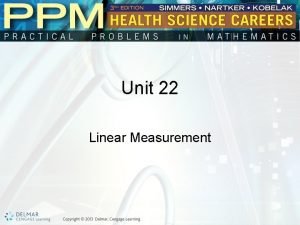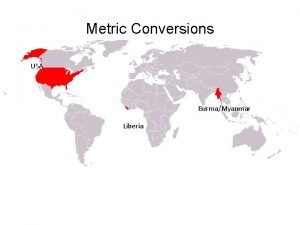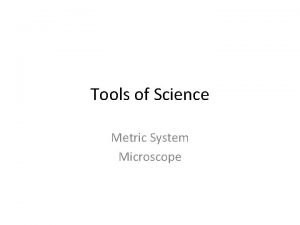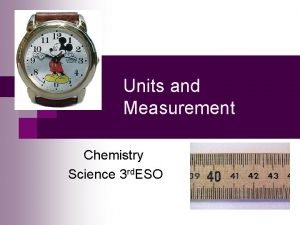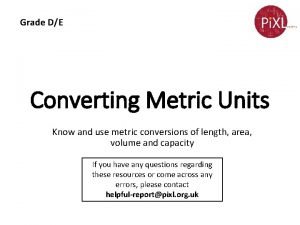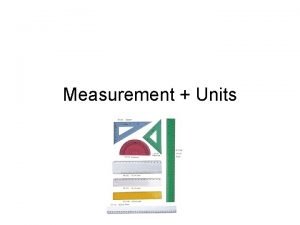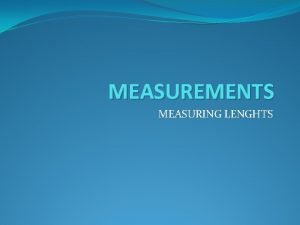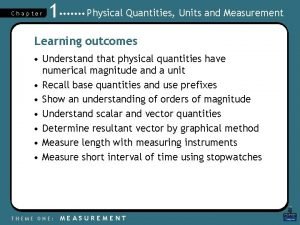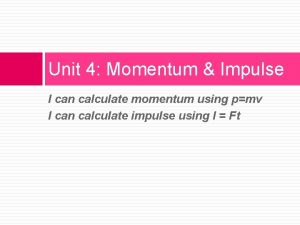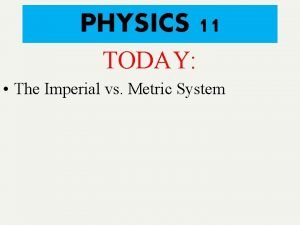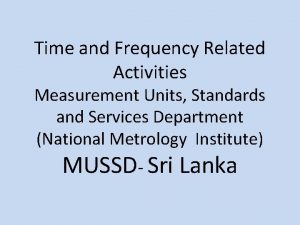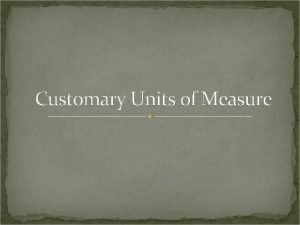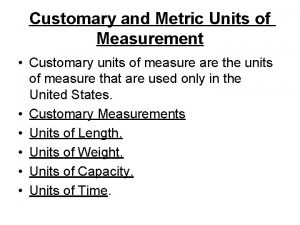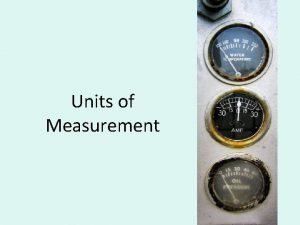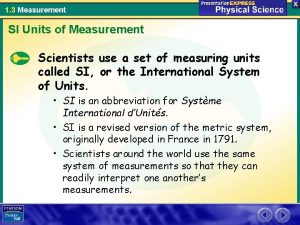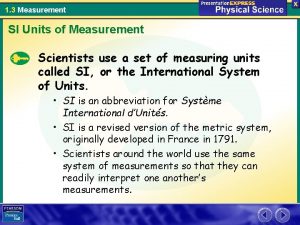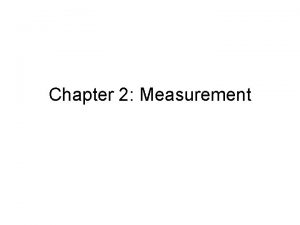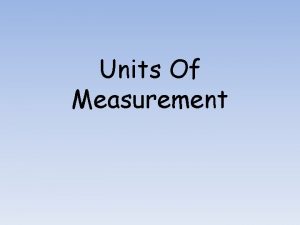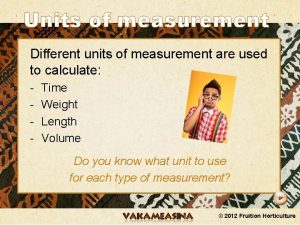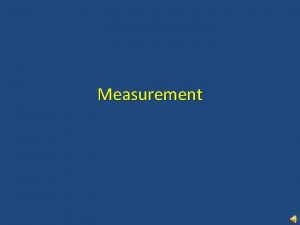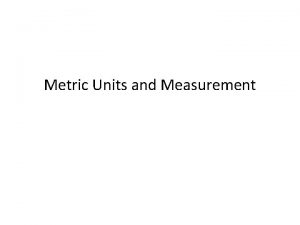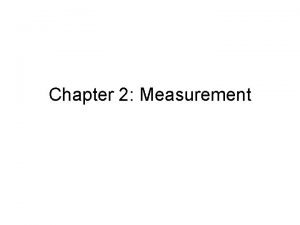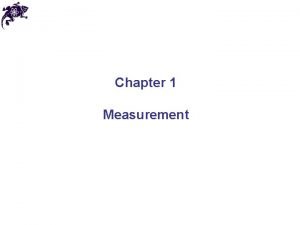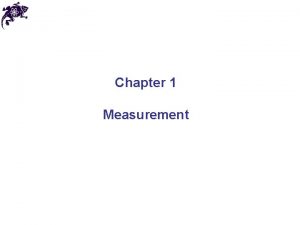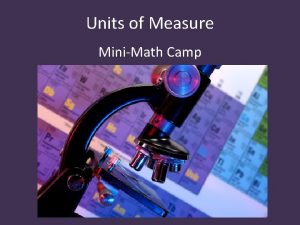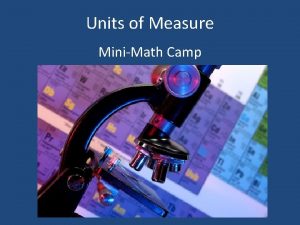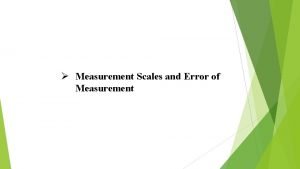Units of Measurement How do scientists measure things

















- Slides: 17

Units of Measurement 〉 How do scientists measure things?

Measurement uses numbers to describe processes and events • Metrology is the study of measurement. This term comes from the Greek words metron which means “measure” and logos which means “study of. ”

4 Common Measurements • length: a measure of the straight-line distance between two points – Base Unit – Meter - m • mass: a measure of the amount of matter in an object – Base Unit – Gram - g • weight: a measure of the gravitational force exerted on an object – Base Unit – Newton - N • volume: a measure of the size of a body or region in three -dimensional space – Base Unit – cubic centimeter – cc or cm 3 or ml

Volume


Metric System The International System of Units is known as SI from its French name Systeme International d’Unites. SI units are the current world standard for measurement. There are seven basic SI units. They are the meter, kilogram, second, ampere, kelvin, mole, and candela.


SI (Le Système Internationale d’Unités)


Conversions Common Conversions • 100 cm = 1 m • 1000 m = 1 km • 1000 mm = 1 m • 1 km = 0. 62 mi • 1 kg = 2. 2 lbs • 1 hr = 60 min • 1 min = 60 s • 3600 s = 1 hr

Conversions • Convert your mass in lbs to kg.


1 step – conversions • • 1000 cm = ? m 45 mg = ? g 800 k. L = ? L 200 lbs = ? Kg – 1 kg = 2. 2 lbs

2 step - conversions • 100 cm = ? km • 8 kg = ? cg • 4500 g = ? Lbs • 50 m 2 = ? cm 2

Complex Conversions • 10 m/s = ? mi/h • 1200 cg = ? Lbs • 5 cm 3 = ? m 3

Conversion Practice • 45 mg = ? g • 800 L = ? c. L • 8 km = ? m • 5 miles = ? km • 0. 62 miles = 1 km

Common Metric – English Conversions • Length – – 1 in. = 2. 54 cm 1 m = 3. 281 ft 1 yd = 0. 9144 m 1 km = 0. 62 mi • Volume – 1 L = 1. 06 qt – 1 ml = 1 cm^3 • Mass – 1 kg = 2. 2 lbs – 1000 kg = 1 t (metric ton) • Force – 1 lb = 4. 48 N • Time – – – 365 days = 1 year 1 day = 24 hr 1 hr = 60 min 1 min = 60 s 3600 s = 1 hr
 Food scientists measure food energy in:
Food scientists measure food energy in: Why do scientists classify organisms
Why do scientists classify organisms Units of linear measurement
Units of linear measurement The metric system
The metric system Deci centi mili
Deci centi mili Kg.m/s
Kg.m/s Customary units of measurement
Customary units of measurement Metric units conversion
Metric units conversion Opisometer is used to measure
Opisometer is used to measure Mrs gallon
Mrs gallon Metric system table
Metric system table Choose the appropriate metric unit to measure each item
Choose the appropriate metric unit to measure each item Derived quantities
Derived quantities Unit of measurement for momentum
Unit of measurement for momentum Imperial unit
Imperial unit Mussd
Mussd Us customary units of measurement
Us customary units of measurement Customary and metric system
Customary and metric system


